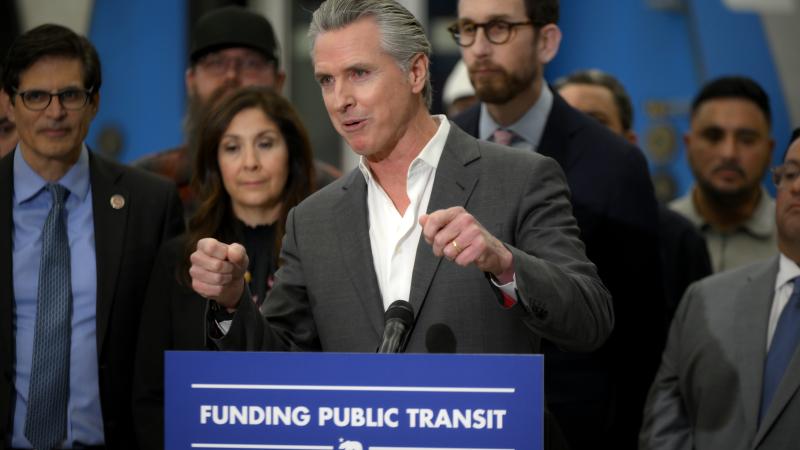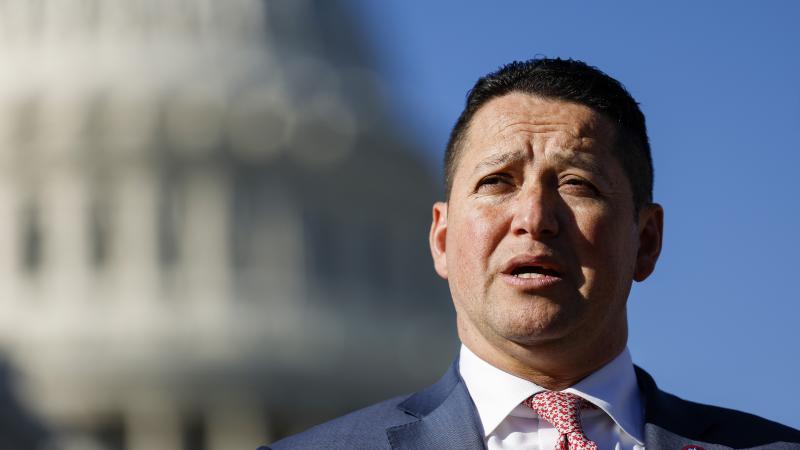By turning abroad and snubbing US oil producers, Biden undermines own climate agenda
"The past 18 months without a doubt have been the most challenging regulatory and political environment that U.S. producers have ever faced," said Tim Stewart, president of U.S. Oil and Gas Association.
President Biden is undermining his own climate agenda by looking abroad for solutions to the current energy crisis rather than supporting domestic producers, according to lawmakers and leaders in the U.S. oil and gas industry.
Since announcing in March a U.S. ban on Russian energy imports in response to Vladimir Putin's invasion of Ukraine, Biden has turned to Iran, Venezuela, and Saudi Arabia as potential substitutes to fill the void in the global marketplace.
The U.S. oil and gas industry has described this effort as a slap in the face to domestic producers, noting the Biden administration has said its long-term energy policy is to transition away from fossil fuels to be more environmentally friendly and combat climate change.
The president, however, may actually be hurting his goal of going green by not doing more to back U.S. oil and gas.
U.S. fossil fuels are "absolutely" cleaner and better for the environment than those of any other country, according to one of the industry's top voices.
"The U.S. environmental and regulatory structure is one of the most robust in the world, and it is backed up by an even more robust legal system which holds U.S. producers accountable," said Tim Stewart, president of the U.S. Oil and Gas Association. "As the world's energy superpower, this means that the largest producer is also the most regulated and accountable of anywhere in the world."
A recent report by CRES Forum cited data showing Russian gas transported via pipeline to Europe has 41% higher greenhouse gas emissions than U.S. liquified natural gas to Europe, even taking into account the emissions produced by shipping the material.
Just this week, the Institute for Energy Research released a new report arguing that, when correcting for various errors in how greenhouse gas emissions are currently calculated, oil produced in California has lower emissions than foreign crude oil imports, including from places such as Iraq, Ecuador, and Saudi Arabia.
A few weeks earlier, the World Bank published data showing the U.S. has made great strides in reducing flaring, which is the burning of natural gas associated with oil extraction. Biden has said he wants to end the practice by 2030.
The U.S. has seen a 46% reduction in flaring intensity, the volume of gas flared per barrel of oil produced, over the past decade and last year was better than almost every country at limiting it, according to the World Bank data.
Venezuela, meanwhile, is "among the worst performers, with a flaring intensity 18 times higher than that of the U.S.," the Bank's Global Gas Flaring Tracker Report found.
Frequent oil spills in Venezuela, which often aren't cleaned up, are also causing serious environmental damage. Experts have highlighted Venezuela's "unsafe and careless production practices" of contaminated oil, which damages not only the environment but also the health of local communities.
Nonetheless, U.S. officials went to Venezuela, a Russian ally and longtime U.S. foe, earlier this year to open a dialogue with President Nicolas Maduro about easing U.S. sanctions so the country can sell its oil on the international market to combat rising prices amid Russia's war in Ukraine.
The Biden administration lifted some sanctions on Venezuela in May.
At a recent hearing, Sen. John Barrasso (R-Wyo.), ranking member of the Senate Energy and Natural Resources Committee, asked Interior Secretary Deb Haaland why the administration would engage Venezuela on oil rather than seek increased U.S. production.
Haaland responded that decisions regarding dealing with foreign countries are left to the president and the secretary of state.
Emissions aren't the only measure or determinant of how clean fossil fuels are, according to Stewart. He pointed to other key concerns, including water quality, impact on land use, and issues with wildlife, especially endangered species.
When taking into account the entire picture, said Stewart, no country can compare to how clean U.S. fossil fuels are.
Regarding wildlife, a study published in the Journal of Environmental Health Science and Engineering noted that "crude oil pollution and biodegradation" in the Persian Gulf, where Iran and Saudi Arabia are located, "significantly diminished biodiversity."
Iran's flaring intensity, meanwhile, was seven times higher than that of the U.S. last year, according to the World Bank.
Earlier this year, senior Biden administration officials declined to rule out purchasing Iranian oil when asked, saying "all options are on the table." The White House has also said the "discussion of oil" was part of negotiations to revive the nuclear deal with Iran.
Biden's trip last week to Saudi Arabia, Iran's chief rival, was widely viewed as a bid to secure increased Saudi oil production in hopes of raising global supply to lower historically high gas prices.
Such steps are a sign of an increasingly weak U.S. foreign policy, according to Stewart.
"It is nonsensical to think that Russian or Iranian crude is better for the U.S. not just for the more responsible way we produce energy but from a foreign policy perspective," said Stewart. "We used to have swagger in our foreign policy, and the Russians and OPEC watched us very carefully and responded to our actions rather than us pleading [with] them to increase production. It is foreign energy policy from a position of weakness."
The White House didn't respond to a request for comment for this story.
Amid soaring global energy prices and supply shortages, Biden has come under fire from critics for his perceived hostility to the U.S. oil and gas industry.
Biden infamously promised to "end" and "get rid of" fossil fuels while campaigning for president. Since entering the White House, he has said his goal is to create a "carbon pollution-free power sector by 2035 and net-zero emissions economy by no later than 2050."
By 2030, Biden further vows, the U.S. will cut fossil fuel emissions by 52%, and half of all new vehicles sold in the U.S. will be electric.
"Domestic production has definitely been hit by the bad policies and the intentional approach to de-bank us and restrict our capital," said Stewart. "The past 18 months without a doubt have been the most challenging regulatory and political environment that U.S. producers have ever faced in our 100-plus-year history."
Democratic Sen. Joe Manchin (W.Va.) echoed this point at a recent Senate hearing, saying the administration has "made its opposition to domestic oil and gas production crystal clear, on and off federal lands and waters."
The Biden administration has taken aggressive steps to steer financing and investment away from the oil and gas industry and even pressure banks and other financial institutions not to make loans to U.S. oil and gas companies.
Adding to the problem, funds raised for oil and gas by U.S. private equity managers have steadily plummeted since 2017. This is due in large part to environmental, social, and governance (ESG) investing, which is based on the premise that investors should use these three broad categories when evaluating where to put their money, prioritizing progressive values and "social responsibility" when making financial decisions.
Many businesses, especially in the oil and gas industry, are concerned that banks and other financial institutions may not lend them money in the future due to pressure from ESG advocates.
Despite pressure from the Biden administration and progressive activists, however, a 2020 Harvard Business School study found that U.S. oil and gas companies — which tend to have lower ESG scores and are often excluded from ESG funds — "are key innovators in the United States' green patent landscape," producing "more, and significantly higher quality, green innovation."
"What is the most troubling, though, is not the attempted death of a thousand paper cuts through the almost daily uneducated policy decisions, but it is the outright hostility to millions of American workers in our industry," said Stewart, decrying the palpable disdain "by the 'educated' elitists populating this administration," who brush aside energy industry workers as "an expendable part of the overall green transition."
















